 Ability Therapy Sarah Cecelia Ann Mueller Illustrated by R. W. Alley
Ability Therapy Sarah Cecelia Ann Mueller Illustrated by R. W. Alley  Abbey Press All rights reserved, including without limitation the right to reproduce this ebook or any portion thereof in any form or by any means, whether electronic or mechanical, now known or hereinafter invented, without the express written permission of the publisher. Text copyright 2013 by Sarah Cecelia Ann Mueller Illustrations copyright 2013 by Saint Meinrad Archabbey ISBN: 978-1-4976-8841-4 Abbey Press Publications 1 Hill Drive St. Meinrad, Indiana 47577 www.abbeypress.com
Abbey Press All rights reserved, including without limitation the right to reproduce this ebook or any portion thereof in any form or by any means, whether electronic or mechanical, now known or hereinafter invented, without the express written permission of the publisher. Text copyright 2013 by Sarah Cecelia Ann Mueller Illustrations copyright 2013 by Saint Meinrad Archabbey ISBN: 978-1-4976-8841-4 Abbey Press Publications 1 Hill Drive St. Meinrad, Indiana 47577 www.abbeypress.com  Distributed by Open Road Distribution 345 Hudson Street New York, NY 10014 www.openroadmedia.com
Distributed by Open Road Distribution 345 Hudson Street New York, NY 10014 www.openroadmedia.com  Foreword One in five people in the U.S. has a physical disability.
Foreword One in five people in the U.S. has a physical disability.
Even if you are not the one, you no doubt have encountered someone who is. While striving for inclusivity, equality, and a full life, people with disabilities are frequently confronted with pity and isolation, and are routinely disenfranchised by a focus on perceived weaknesses rather than strengths and abilities. It is my hope that this little book will be a source of clarity, and support for anyone seeking an ability-driven life, as well as for the mental health professionals, medical support staff, caregivers, friends, and family members who care about and for them. We are all called upon to empower ourselves and others to achieve a life of meaning, fulfillment, and purpose. 1. Learning to live with a disability in a world full of barriers and obstacles is an ongoing endeavor involving much trial and error. 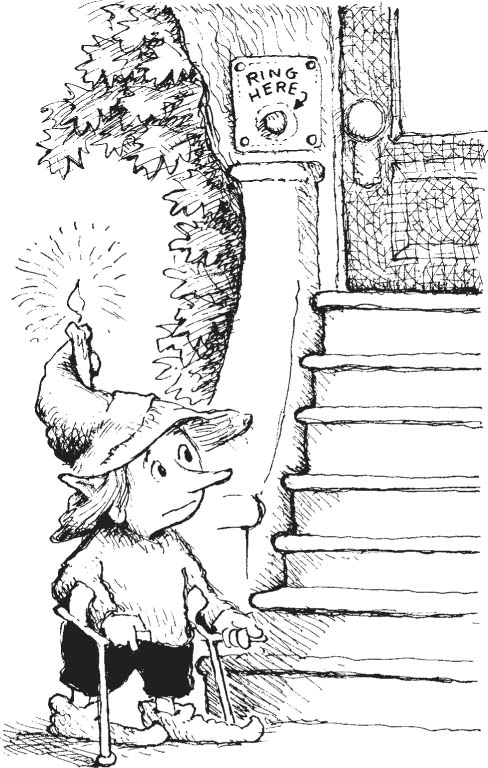 2. You have a right to talk openly about how hard things can be for you without having your feelings and pain trivialized or explained away.
2. You have a right to talk openly about how hard things can be for you without having your feelings and pain trivialized or explained away.  2. You have a right to talk openly about how hard things can be for you without having your feelings and pain trivialized or explained away.
2. You have a right to talk openly about how hard things can be for you without having your feelings and pain trivialized or explained away.
Ask a trusted friend to just listen.  3. You do not owe anyone an explanation about your health or ability regardless of how genuine the request. Honor your right to privacy and respect your boundaries even when others do not.
3. You do not owe anyone an explanation about your health or ability regardless of how genuine the request. Honor your right to privacy and respect your boundaries even when others do not. 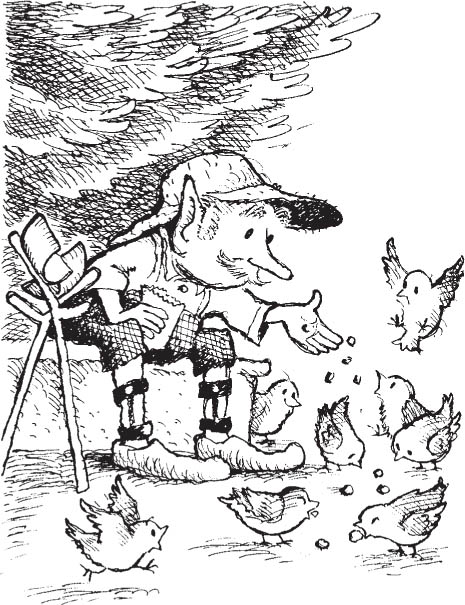 4. If you live with an invisible disability, the expectations and judgments of others can understandably dampen your spirit. Do not be discouraged.
4. If you live with an invisible disability, the expectations and judgments of others can understandably dampen your spirit. Do not be discouraged. 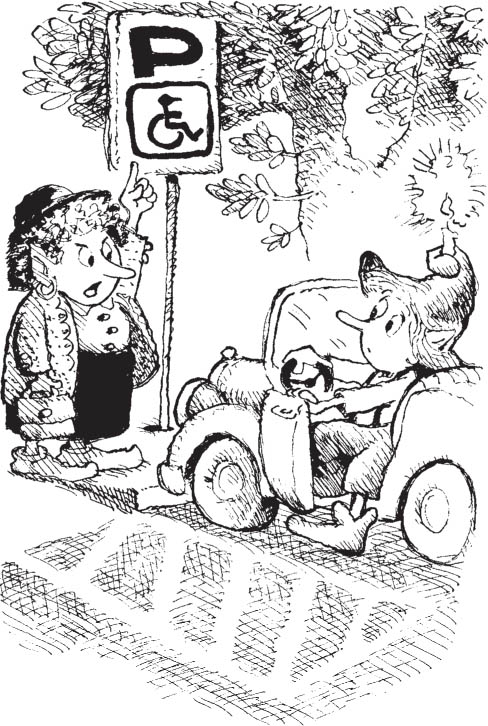 5. Everyone must work hard to achieve their goals; you are not an exception.
5. Everyone must work hard to achieve their goals; you are not an exception.  5. Everyone must work hard to achieve their goals; you are not an exception.
5. Everyone must work hard to achieve their goals; you are not an exception.
When you allow others to do for you the things that you can do for yourself, it is easy to develop a sense of entitlement.  6. When you do not achieve the important outcomes you hoped for, and you are tempted to place blame on others, remember that even experts are only human, not infallible, and that everyone has done their best. Focus instead on your next efforts and solutions.
6. When you do not achieve the important outcomes you hoped for, and you are tempted to place blame on others, remember that even experts are only human, not infallible, and that everyone has done their best. Focus instead on your next efforts and solutions. 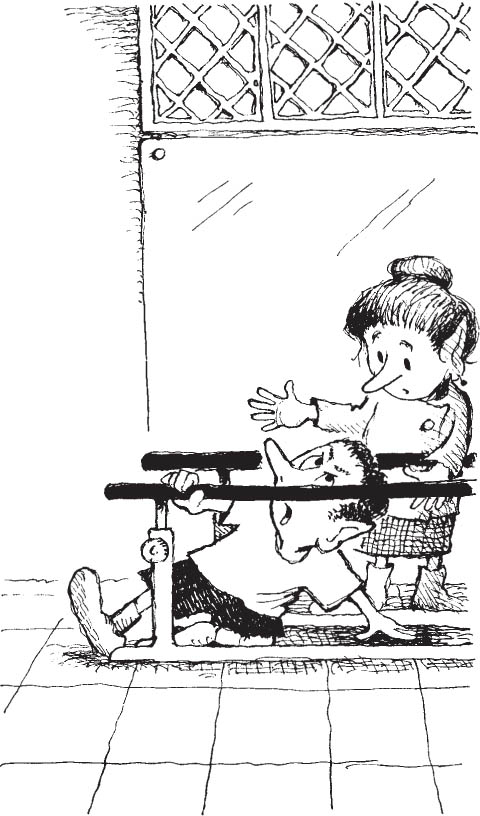 7. When you are overcome with pain, fear, or uncertainty, it is all too easy to push away those who care the most. Make amends with those you may have hurt or shut out.
7. When you are overcome with pain, fear, or uncertainty, it is all too easy to push away those who care the most. Make amends with those you may have hurt or shut out. 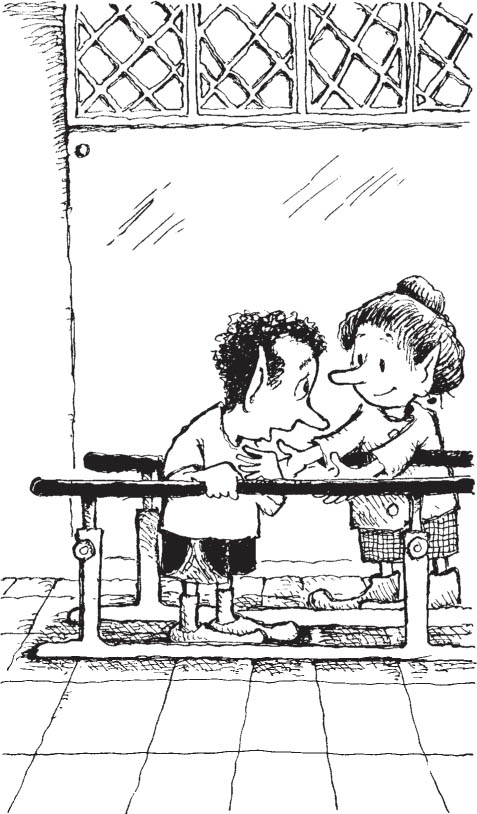 8. Be patient with yourselfreal progress is rarely made overnight.
8. Be patient with yourselfreal progress is rarely made overnight.  8. Be patient with yourselfreal progress is rarely made overnight.
8. Be patient with yourselfreal progress is rarely made overnight.
Set small, achievable goals, and allow yourself to make each move gradually. 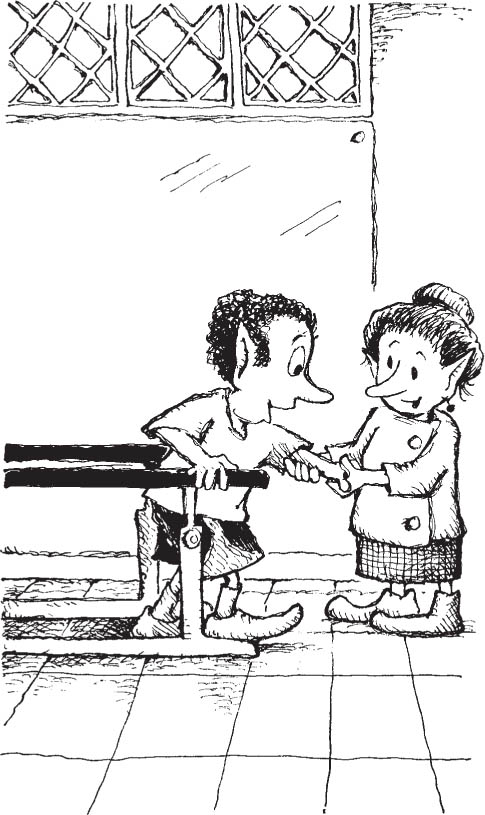 9. Allow lifes hardships to help you connect with those on a similar journey. Fellowship eases the burdenyou do not have to go it alone. There are others who understand.
9. Allow lifes hardships to help you connect with those on a similar journey. Fellowship eases the burdenyou do not have to go it alone. There are others who understand. 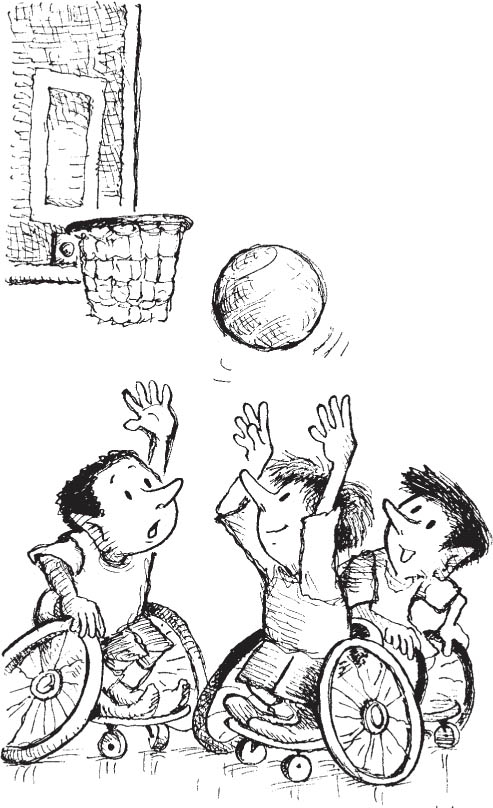 10. True friends want to share and rejoice in your successes along with you!
10. True friends want to share and rejoice in your successes along with you! 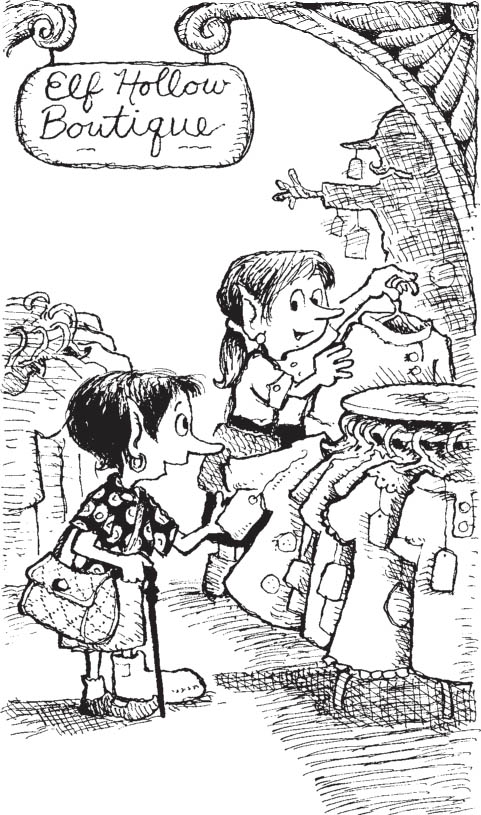 11. The prayers others offer for you may leave you feeling as though you have failed for being unable to heal or alter the course of your health. Know that you have not failedthe absence of a visible miracle does not mean the absence of God!
11. The prayers others offer for you may leave you feeling as though you have failed for being unable to heal or alter the course of your health. Know that you have not failedthe absence of a visible miracle does not mean the absence of God!  12. Set aside time to try something new: check out an accessible restaurant in town, attend a community event, or plan an outing with friends and family.
12. Set aside time to try something new: check out an accessible restaurant in town, attend a community event, or plan an outing with friends and family.
Doing things on your own terms can make taking the first steps less daunting. 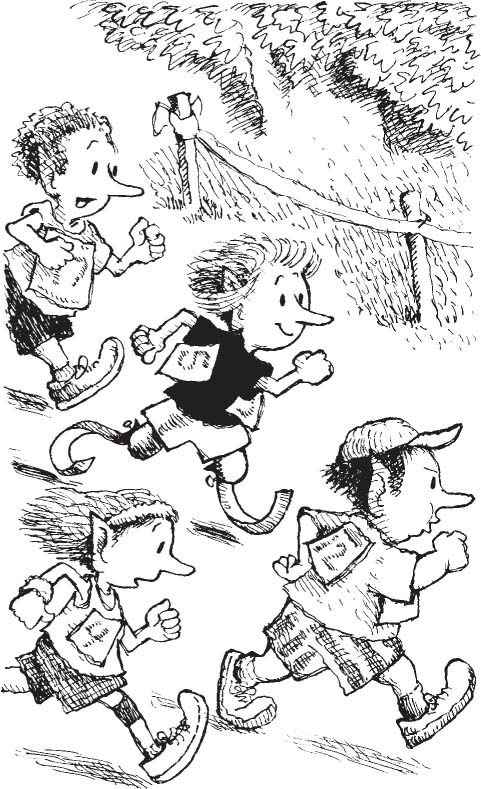 13. Avoid feeling envious of those who appear to have it easier. Plato wisely observed: Be kind, for everyone you meet is fighting a hard battle.
13. Avoid feeling envious of those who appear to have it easier. Plato wisely observed: Be kind, for everyone you meet is fighting a hard battle.  14. Though your approach to hardship may be called inspirational by some you encounter, remember that you are a whole person, and not a one-dimensional representation. You are not required to be a pillar of courage and perseverance for anyone else.
14. Though your approach to hardship may be called inspirational by some you encounter, remember that you are a whole person, and not a one-dimensional representation. You are not required to be a pillar of courage and perseverance for anyone else. 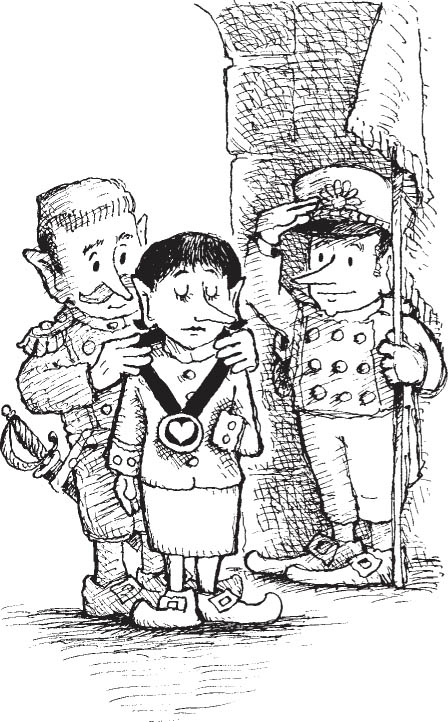 15. Know that the only true limits that exist are the ones we impose upon ourselves.
15. Know that the only true limits that exist are the ones we impose upon ourselves.
If you can dream it, there is a way to achieve it!  16. A change in ability can mean the end of a comfortable and familiar lifestyle. You have the right to grieve this life-changing loss. Allow yourself the time needed to find your new normal.
16. A change in ability can mean the end of a comfortable and familiar lifestyle. You have the right to grieve this life-changing loss. Allow yourself the time needed to find your new normal. 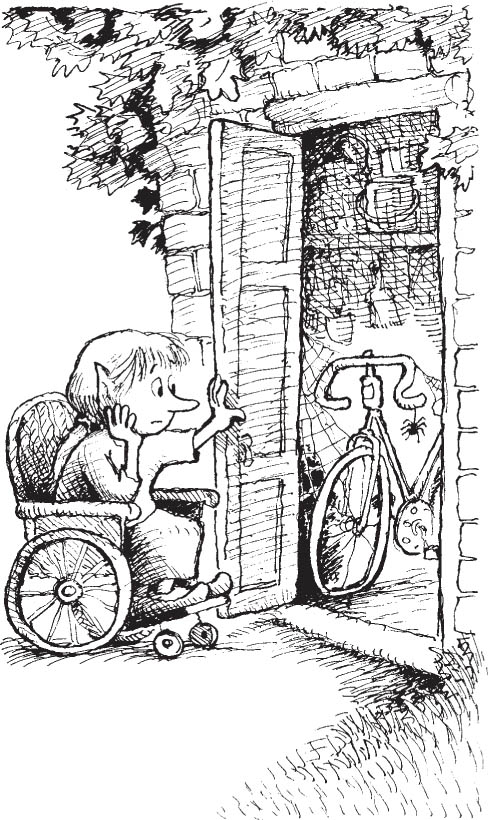
Next page
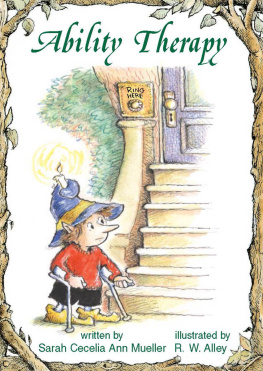





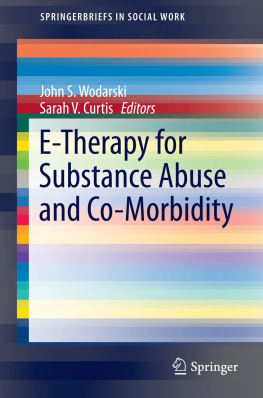



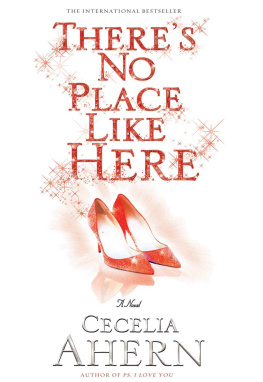
 Ability Therapy Sarah Cecelia Ann Mueller Illustrated by R. W. Alley
Ability Therapy Sarah Cecelia Ann Mueller Illustrated by R. W. Alley  Abbey Press All rights reserved, including without limitation the right to reproduce this ebook or any portion thereof in any form or by any means, whether electronic or mechanical, now known or hereinafter invented, without the express written permission of the publisher. Text copyright 2013 by Sarah Cecelia Ann Mueller Illustrations copyright 2013 by Saint Meinrad Archabbey ISBN: 978-1-4976-8841-4 Abbey Press Publications 1 Hill Drive St. Meinrad, Indiana 47577 www.abbeypress.com
Abbey Press All rights reserved, including without limitation the right to reproduce this ebook or any portion thereof in any form or by any means, whether electronic or mechanical, now known or hereinafter invented, without the express written permission of the publisher. Text copyright 2013 by Sarah Cecelia Ann Mueller Illustrations copyright 2013 by Saint Meinrad Archabbey ISBN: 978-1-4976-8841-4 Abbey Press Publications 1 Hill Drive St. Meinrad, Indiana 47577 www.abbeypress.com  Foreword One in five people in the U.S. has a physical disability.
Foreword One in five people in the U.S. has a physical disability. 2. You have a right to talk openly about how hard things can be for you without having your feelings and pain trivialized or explained away.
2. You have a right to talk openly about how hard things can be for you without having your feelings and pain trivialized or explained away.  3. You do not owe anyone an explanation about your health or ability regardless of how genuine the request. Honor your right to privacy and respect your boundaries even when others do not.
3. You do not owe anyone an explanation about your health or ability regardless of how genuine the request. Honor your right to privacy and respect your boundaries even when others do not.  4. If you live with an invisible disability, the expectations and judgments of others can understandably dampen your spirit. Do not be discouraged.
4. If you live with an invisible disability, the expectations and judgments of others can understandably dampen your spirit. Do not be discouraged.  5. Everyone must work hard to achieve their goals; you are not an exception.
5. Everyone must work hard to achieve their goals; you are not an exception.  6. When you do not achieve the important outcomes you hoped for, and you are tempted to place blame on others, remember that even experts are only human, not infallible, and that everyone has done their best. Focus instead on your next efforts and solutions.
6. When you do not achieve the important outcomes you hoped for, and you are tempted to place blame on others, remember that even experts are only human, not infallible, and that everyone has done their best. Focus instead on your next efforts and solutions.  7. When you are overcome with pain, fear, or uncertainty, it is all too easy to push away those who care the most. Make amends with those you may have hurt or shut out.
7. When you are overcome with pain, fear, or uncertainty, it is all too easy to push away those who care the most. Make amends with those you may have hurt or shut out.  8. Be patient with yourselfreal progress is rarely made overnight.
8. Be patient with yourselfreal progress is rarely made overnight.  9. Allow lifes hardships to help you connect with those on a similar journey. Fellowship eases the burdenyou do not have to go it alone. There are others who understand.
9. Allow lifes hardships to help you connect with those on a similar journey. Fellowship eases the burdenyou do not have to go it alone. There are others who understand.  10. True friends want to share and rejoice in your successes along with you!
10. True friends want to share and rejoice in your successes along with you!  11. The prayers others offer for you may leave you feeling as though you have failed for being unable to heal or alter the course of your health. Know that you have not failedthe absence of a visible miracle does not mean the absence of God!
11. The prayers others offer for you may leave you feeling as though you have failed for being unable to heal or alter the course of your health. Know that you have not failedthe absence of a visible miracle does not mean the absence of God!  12. Set aside time to try something new: check out an accessible restaurant in town, attend a community event, or plan an outing with friends and family.
12. Set aside time to try something new: check out an accessible restaurant in town, attend a community event, or plan an outing with friends and family. 13. Avoid feeling envious of those who appear to have it easier. Plato wisely observed: Be kind, for everyone you meet is fighting a hard battle.
13. Avoid feeling envious of those who appear to have it easier. Plato wisely observed: Be kind, for everyone you meet is fighting a hard battle.  14. Though your approach to hardship may be called inspirational by some you encounter, remember that you are a whole person, and not a one-dimensional representation. You are not required to be a pillar of courage and perseverance for anyone else.
14. Though your approach to hardship may be called inspirational by some you encounter, remember that you are a whole person, and not a one-dimensional representation. You are not required to be a pillar of courage and perseverance for anyone else.  15. Know that the only true limits that exist are the ones we impose upon ourselves.
15. Know that the only true limits that exist are the ones we impose upon ourselves. 16. A change in ability can mean the end of a comfortable and familiar lifestyle. You have the right to grieve this life-changing loss. Allow yourself the time needed to find your new normal.
16. A change in ability can mean the end of a comfortable and familiar lifestyle. You have the right to grieve this life-changing loss. Allow yourself the time needed to find your new normal. 